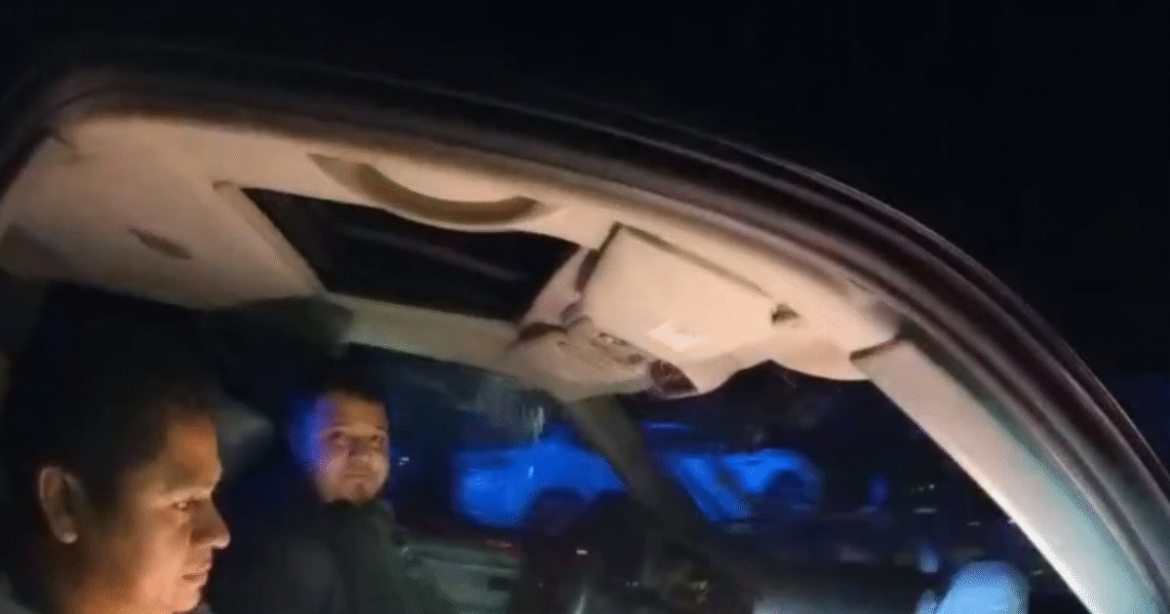

Kilmar Abrego-Garcia turned himself in to ICE officials in Baltimore on Monday morning.
Kilmar did not plead guilty to human trafficking charges as many expected he would.
Magistrate Judge Barbara D. Holmes denied the U.S. government’s motion to keep MS-13 gang member Kilmar Abrego-Garcia in custody before trial. On August 22, he was released from federal custody in Tennessee despite a long record of violence and crime.
Abrego-Garcia faces two federal charges: conspiracy to unlawfully transport illegal aliens for financial gain and unlawful transportation of illegal aliens for financial gain. The indictment alleges that he made more than 100 smuggling trips over nearly a decade, moving thousands of illegal immigrants, including children and fellow MS-13 members, and earning up to $100,000 a year.
A cooperating witness claimed children were forced to sit on the floorboards of his vehicles during transport. In 2022, he was stopped in Tennessee with eight passengers and no luggage on what he called a three-day journey, further raising suspicions of human trafficking.
In an earlier June hearing, Judge Holmes sustained objections that blocked testimony about Abrego-Garcia’s alleged sexual relationships with female passengers, including minors. U.S. District Judge Waverly Crenshaw later defended his release, writing that “the government’s general statements about the crimes brought against Abrego, and the evidence it has in support of those crimes, do not prove Abrego’s dangerousness.”
Yet the record shows otherwise: his MS-13 membership was first confirmed in 2019 by the Prince George’s County Police Gang Unit, later validated by two separate judges, and reinforced by his gang-symbolic clothing when arrested.
Court filings also document years of domestic violence. His wife filed protection orders in 2020 and 2021, alleging that he kicked, slapped, and shoved her, verbally abused her and her children, locked the children in their bedroom while they cried, and detained her against her will.
In her 2021 handwritten petition, she wrote: “At this point, I am afraid to be close to him. I have multiple photos/videos of how violent he can be and all the bruises he [has] left me.” She further alleged he punched and scratched her eye, leaving her bleeding, and destroyed her laptop.
According to DHS Secretary Kristi Noem, Abrego-Garcia also solicited nude photographs from a minor. Federal prosecutors have attempted to present testimony that he abused women he was transporting, including minors. The indictment notes that “some of the women Abrego-Garcia transported allegedly told other members of the group that he had abused them,” pointing to sexual abuse and rape of trafficking victims.
The legality of Kilmar Abrego-Garcia’s deportation is complex, but the U.S. government was right to deport him. The only error was sending him to El Salvador, his country of citizenship, despite a 2019 immigration ruling that granted withholding of removal due to his fear of gang persecution. That ruling blocked deportation specifically to El Salvador but allowed removal to any other country willing to accept him.
The Justice Department had already known his background from a 2022 Tennessee traffic stop, when he was questioned for over an hour while transporting 8–11 passengers. Officers suspected human trafficking, but after contacting federal authorities, he was released with only a warning for an expired license.
Now the possible outcomes are that he faces trial on human-smuggling charges with severe penalties, or that he is deported to a third country. Immigration officials plan to send him to Uganda under a new arrangement to accept certain U.S. deportees, consistent with America’s third-country removal policy when the home country is barred.
At 4:01 p.m. on Friday, ICE emailed his attorneys: “Please let this email serve as notice that DHS may remove your client, Kilmar Armando Abrego Garcia, to Uganda no earlier than 72 hours from now (absent weekends).” He was ordered to report to the ICE Baltimore Field Office on Monday, surrendered that morning, and was immediately taken into custody for processing.
His attorney, Simon Sandoval-Moshenberg, said officers would not explain the basis for detention or reveal which facility he’d be sent to. DHS insists on Uganda, even though Abrego-Garcia has no ties there, does not speak the language, and previously received protection from removal to El Salvador.
The deportation notice followed his rejection of a plea deal to accept removal to Costa Rica in exchange for pleading guilty and serving jail time. His lawyers argue the government is punishing him for refusing the plea by threatening deportation to Uganda.
A habeas petition filed Monday claims he was taken into custody without a chance to present his fears of persecution or torture and asks the court to block removal to Uganda, require the government to attempt Costa Rica first, and provide him a “reasonable fear” interview. Do his lawyers actually believe he is a wanted man in Uganda?
The post Kilmar Abrego Garcia Released by ICE Despite Long History of Violence, Faces Possible Deportation to Uganda appeared first on The Gateway Pundit.

